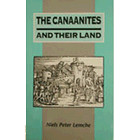 In yesterday’s post I quoted a brief outline of the variant meanings that have been assigned “Canaan” and “Canaanites” throughout supposedly biblical times. But there is much more to be said, or at least suggested. Niels Peter Lemche discusses these concepts in depth in The Canaanites and Their Land and here I lay out one of the many facets making up that book: — that Canaanites for the Bible’s authors really meant fellow Jews who stood apart as religious rivals.
In yesterday’s post I quoted a brief outline of the variant meanings that have been assigned “Canaan” and “Canaanites” throughout supposedly biblical times. But there is much more to be said, or at least suggested. Niels Peter Lemche discusses these concepts in depth in The Canaanites and Their Land and here I lay out one of the many facets making up that book: — that Canaanites for the Bible’s authors really meant fellow Jews who stood apart as religious rivals.
After surveying in depth the historical references to whatever was truly Canaanite in the second and first millennia b.c.e. (and demonstrating how alien each historical reference is to anything about Canaan and the Canaanites in the Bible) Lemche addresses the treatment of the term in the various books of the Bible. In his concluding chapter he addresses conclusions that may be drawn — or rather postulates that may be aired — if we think of the historical books as being written in the late Persian or Hellenistic eras. Continue reading “Will the real Canaanites please stand up!”
